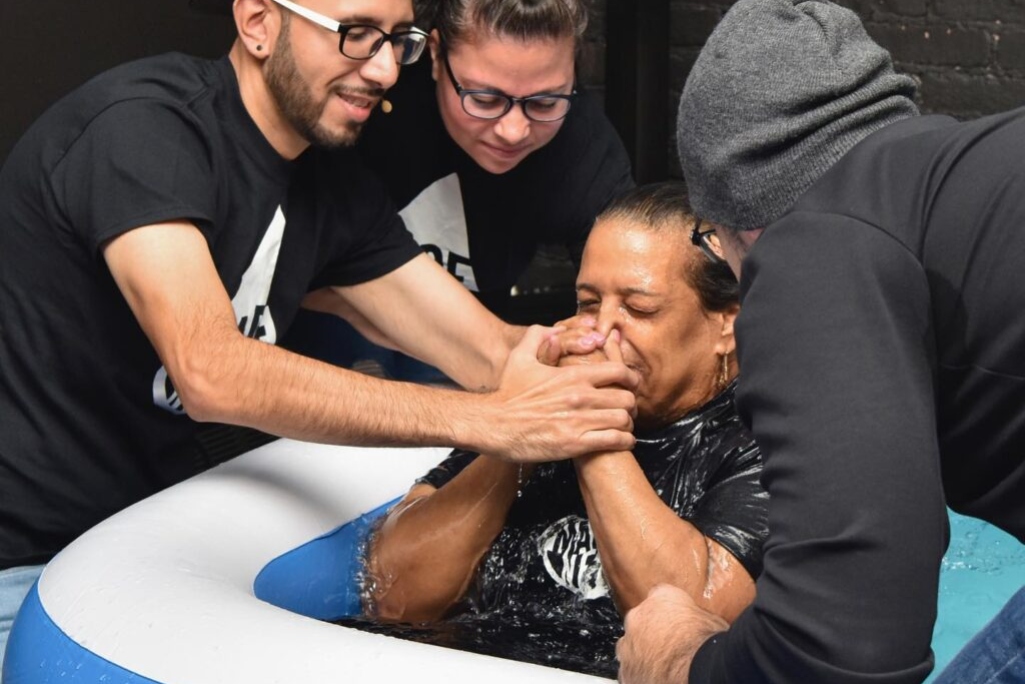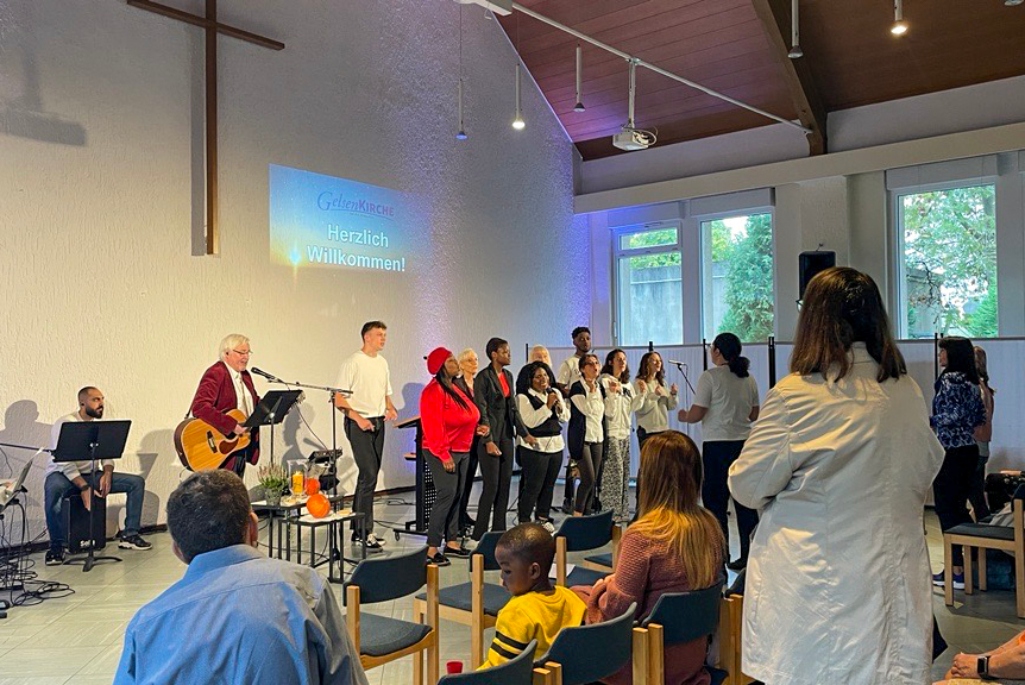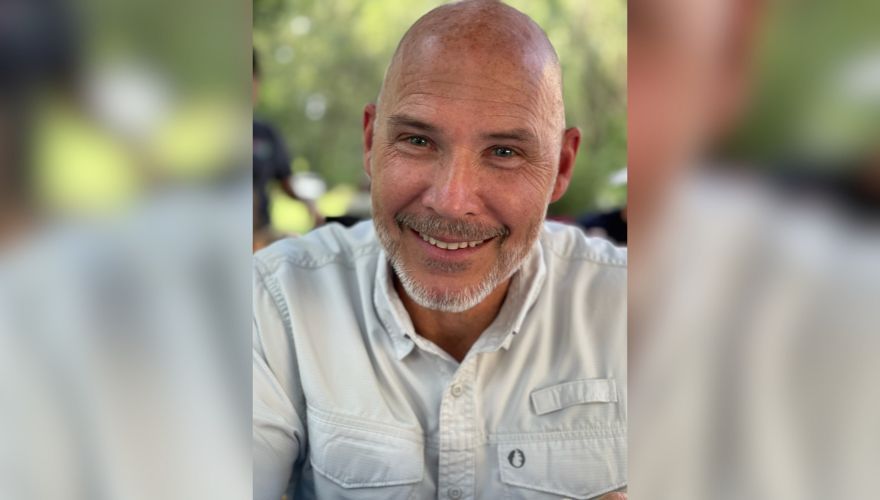
Danny Torres, who was born and raised in the Bushwick neighborhood of Brooklyn, N.Y., baptizes a new believer. Torres planted Swerve Church in his community in 2016 as part of Send Network, the church planting arm of the North American Mission Board. Bushwick is only two-square miles but more than 120,000 people call the community home.
ALPHARETTA, Ga. (BP) – The Bushwick neighborhood in Brooklyn, N.Y., is small in terms of land area – roughly two square miles – but more than 120,000 people call it home.
“It’s an urban poor context, a community with a lot of need,” said Danny Torres, who was born and raised in Bushwick and planted Swerve Church in his community in 2016 as part of Send Network. “The kids who walk our streets, they’ve seen a lot of crazy things. The people in our communities have experienced a lot of loss. Planting in the urban context is hard soil, even for someone who was born and raised here.”
As part of the North American Mission Board’s (NAMB) efforts to help churches plant churches everywhere for everyone, Send Network, NAMB’s church planting arm, is taking steps to enhance its efforts to support church plants in urban contexts and serve missionaries like Torres who are ministering in neighborhoods that are often difficult to reach.
“Send Network trains all our church-planting missionaries to engage cities, make disciples and plant churches,” said Vance Pitman, president of Send Network. “However, engaging the urban context fundamentally differs from others, such as suburban and rural contexts. As we intensify our training of urban leaders, I am thrilled for Doug Logan, a seasoned practitioner, to invest in urban leaders and sending churches.”
Logan joined Send Network’s team as director of urban church planting in December 2023. He has been pastor of church planting at Remnant Church in Richmond, Va., a Southern Baptist church, since 2018.
He grew up in Paterson, N.J., before coming to faith in Christ while he was running a barber shop in South Jersey. His life was radically transformed, and God called him to be a pastor.
“I was raised in the hood and came to faith in the traditional, National Baptist church,” Logan said. “As I started going to church, my heart was broken for the folks in my neighborhood, guys who I’d invite to church, and they’d be smelling like weed. I wanted to be part of a church that could reach the hood, and that eventually developed into an opportunity for me to plant a church in the rough neighborhood of Camden, New Jersey.”
Logan was first ordained in the late 1990s at Christ Baptist Church in Burlington, N.J., and pastored a church in the Kensington neighborhood of Philadelphia before God started opening doors around 2008 to plant a church in Camden, N.J., a city known for one of the highest crime rates in the U.S.
He began the church planting process through a Southern Baptist church and participated in and passed a Southern Baptist assessment, but Logan said he apparently “fell through the cracks,” shortly after that and never received follow up. A short time later, Logan’s family began experiencing financial turmoil as they aimed to answer the call to start a new church.
“At that point, my family was going through financial strife,” Logan recalled. “I’m in the hood, struggling – struggling to eat, struggling to pay bills. We were hurting, but for the sake of this ministry in the inner city, we were still trying to get it done.”
During that season of hardship, a local Presbyterian Church of America (PCA) congregation in Philadelphia, Tenth Presbyterian, embraced Logan and his family. Leadership there had a heart to see a Gospel-preaching church planted in Camden, which is just across the river from downtown Philadelphia.
The church took in the young, struggling minister and his family, showing him kindness and ultimately supporting his ministry.
“In the South, there are churches on every corner, and you can kind of afford to be separate,” Logan said. “But in cities like Philadelphia, there aren’t enough churches with a vision for urban church planting. So, the Baptists and Presbyterians who have a desire to reach the city have a willingness to work together to spread the Gospel because the needs are just so great.”
Paul David Tripp, a leader at Tenth Presbyterian at the time, was one of the key influences who encouraged Logan as a disciple of Christ.
As Logan launched the Epiphany Camden Church, he became an ordained PCA minister, but the congregation never fit neatly within the Presbyterian fold.
“My convictions about baptism eventually led me and Epiphany out of the PCA. As much as we appreciated all the PCA had done, my heart wasn’t bent theologically that way.” Logan said. “I resigned my ordination in 2017. I followed my convictions and joined the SBC, and when I moved to Remnant Church in Richmond, they ordained me in September of 2018.”
While in Camden, Logan trained a number of young leaders who would go on to plant churches throughout North America. Epiphany had a vision of planting churches in the top-20 most difficult urban areas in America.
Logan’s passion to raise up leaders to plant churches and minister in the urban context spurred him to serve through Acts 29, assisting that network’s urban church planting efforts (Logan left Acts 29 in 2023). He is the founding president of Grimké Seminary, which offers church-based theological and ministry education.
Logan earned a Master of Arts in church planting from Lancaster Bible College & Capital Seminary in 2016, and the school recognized him with an honorary Doctor of Divinity in 2019. In 2022, he completed a Ph.D. in Organizational Leadership from Newburgh Theological Seminary, an unaffiliated school in Indiana with primarily online coursework.
Now, as part of Send Network’s team, Logan will help develop specific training for Southern Baptist church planters who are seeking to reach urban neighborhoods with the Gospel.
“So many of the poorer neighborhoods are being missed because of the financial instability associated with those neighborhoods,” Logan said. “It can seem unsustainable because it’s hard, and church planters lack the training and care they need to make it less daunting.”
Send Network’s goal will be to create a clear pathway where urban church planters have an on-ramp into ministry as well as the support they need to endure in the difficult work through specific coaching, content and curriculum.
“Our call to reach all nations with the Gospel includes all neighborhoods,” Logan said. “The Great Commission is great both in size and in power. It’s a dynamic commission with cosmic implications. It goes from Rodeo Drive in Beverly Hills to the blocks of Camden, New Jersey. When we see it that way, we will have the posture of a missionary.”
(EDITOR’S NOTE – Brandon Elrod writes for the North American Mission Board.)


